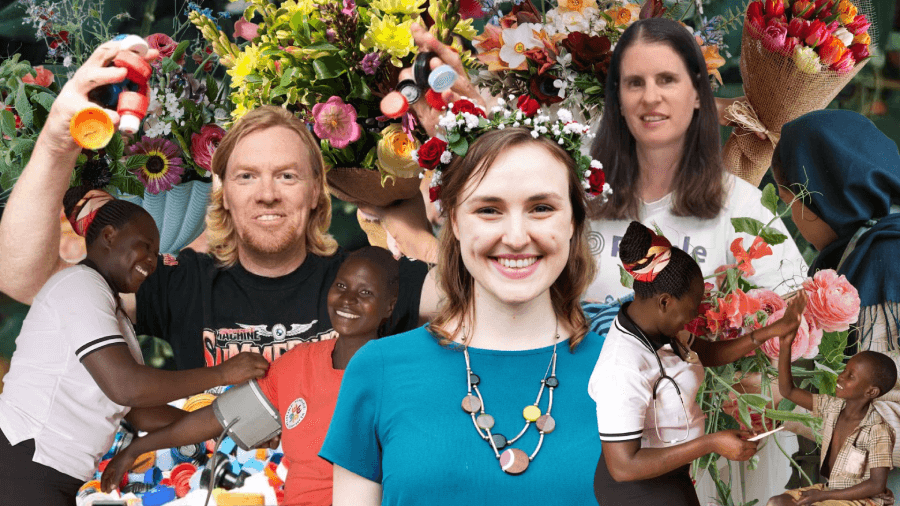Written by Lucy Brotherton, the Community Capacity Building Officer – Social Investment at City of Parramatta Council
Grant writing often feels like navigating a labyrinth of challenges. Ever felt like you’re in a Shakespearean tragedy, struggling to secure that elusive grant or wondering if you’ll ever get it right? Fear not! Let me walk you through the Ten Things I Hate About Grants and guide you on how to (like) ‘deal’.
1. Grant applications are too long
Yes, many grant applications are long but here are some tips to make it easier to draft quick, concise responses:
- Save time by using dot points to answer questions
- Make sure you are answering the particular question being asked. Each question is designed to obtain specific information about your project. Look for key words to focus your response, otherwise you end up repeating yourself and taking longer.
- Keep your answers relevant to the project you will be undertaking. While your social enterprise is likely fabulous and creating impact, for your application, you will need to focus on the impact that this particular project will create.
2. Word limits – How do I give a brief description of my fabulous project in 100 words?
When asked to write a ‘brief project description’ it can be tough to say everything you want in so few words. The trick is not to get distracted setting the scene or giving information about your organisation in this section – keep it focused on the actual project you are asking for funding for.
Try a summary like this:
- What are you going to do (Run a series of workshops)
- Who is it for (For high school students in Parramatta)
- What will be the outcome (To improve knowledge and understanding of the risks of vaping)
- Why (To address the high levels of vaping amongst teenagers in the Parramatta area and reduce the associated health risks)
3. Short submission timeframes
Quick-turnaround grants are common due to fiscal year constraints. Trying to get money out the door, knowing how long grant approvals process takes, means the grant can only be open for a short window.
There is very little you can do about this one, but one idea is to have a few fully formed project ideas that you can pull off the shelf to take advantage of those quick-fire grant opportunities.
4. Time vs Value – Is it worth 20 hours of work for a $5,000 grant?
Time for a reframe – Yes, the grant provides you with $5,000 but is that really the only value of the grant? Consider this:
Receiving a grant creates a relationship between you and the organisation providing the grant. Building on this relationship could provide other opportunities down the track. There may be opportunities to meet other grant recipients, which could offer some interesting partnership opportunities in the future.
Receiving a grant can give other potential funders confidence that you are known and actively supported, which may work in your favour for similar grant programs.
Undertaking a small grant program can provide evidence about your work that can support future grant applications under larger grant programs. It could be a vital stepping stone in accessing greater funding and creating bigger impact.
So maybe those 20 hours were worth it……..
5. Performance anxiety – I am not a professional grant writer – is my writing letting me down?
Generally, people reading your grant application are not assessing your ability to write professional, perfectly polished prose. What they really want is something written very simply and clearly so that they can understand what you are doing and why you are doing it and feel confident you can deliver it.
A couple of suggestions:
- Run a draft of your application past someone who doesn’t know your project. See if they can understand what your project is. Likely, the person reading your application won’t know what you are doing, so double-check that you are being clear enough by getting a second opinion.
- If you are really worried about your writing ability, you can (cautiously) consider using AI to improve your text. This can be useful, especially if English is not your first language, but make sure the text still has enough of your specific project detail or the grant assessor may think you plugged the whole idea into your friendly AI program and you don’t really know what you’re doing.
6. Financials – Why all the detail?
Asking for financial information is a grant-giver’s way of reducing risk. Put simply, they don’t want to give money to an organisation that is then going to use those funds to cover existing debts.
If you are a small community organisation or a very early-stage start-up with limited financial information, ring the person running the grant program and ask them exactly what they need before you start drafting your application. This will save you time if your lack of financials makes you ineligible or may provide you with an alternative way of presenting what financial information you do have while satisfying the grant-giver’s requirements.
Remember to always provide the relevant information. Failure to do so may make your application ineligible and, therefore, not even assessed.
7. Hidden agendas – How do I know what they’re REALLY looking for?
When the strike rate for successful grants is around 10%, it can be tempting to think that those organisations that get the grants ‘know something you don’t’ about that particular grant program.
Understanding grant criteria is key. Focus on which questions align with each grant criteria. This can help you work out which questions you really should focus your time and attention on. Using some of the keywords in the criteria or other guidance material in your answers can also keep you on track to providing exactly the information the grant-giver wants.
On a slightly flippant note, it is worth remembering that grant givers want you to make them look good. Use evidence to support the need for your project, clearly spell out the expected outcomes, and align with the funder’s goals. This will help them figure out what they’re really looking for – you!
8. Being left in the dark – Why didn’t I get the grant?
Always try to seek feedback. If it’s offered, take it up. If it’s not, be proactive and seek it out.
It is always worth following up to see if you can find out what would have made the difference to get you to a ‘yes’. It may be as simple as articulating your project more clearly or needing to add some statistical evidence to support your application, or it could be that your application was great, but you just got pipped by some seriously amazing applications, but they would encourage you to apply again next time. That might just take away a little bit of the sting.
9. Outcomes measurement requirements – the difference between outputs, outcomes, indicators, impact…
If you haven’t already, learn about outcomes measurement. Being well-intentioned is no longer good enough. You need to measure and demonstrate that you are making a difference.
Many funders will now ask you to list the proposed outcomes, targets, and indicators that you are planning to use to measure your project’s impact. Even if a grant application doesn’t explicitly ask for them, it is best practice to include this information in any grant application you do.
Identifying your outcomes measurement targets and indicators can also greatly assist with your project planning and design. If you identify these at the outset, you can ensure that you build your project to effectively capture the data that you need.
10. Where are all the grant opportunities for Social Enterprises?
If a social enterprise grant opportunity exists, then it will be on Social Change Central!
An excellent grant opportunity currently available is the City of Parramatta’s Growing Social Enterprise in Parramatta grant. This grant is tailored for established social enterprises that have demonstrated their commitment to sustainability and impactful social missions and now seek to scale their operations and broaden their reach within the vibrant community of Parramatta.
With grants of up to $25,000 on offer, this grant program aims to empower social entrepreneurs to establish a stronger presence in Parramatta or expand existing operations to create a more significant impact in the local community. Whether you’re a newcomer to Parramatta or have deep roots there, this grant provides a unique chance to elevate your social enterprise to new heights.
The grant round is currently open and closes at 11.59pm on Monday 26th August.
To find out more about the Growing Social Enterprise in Parramatta grants, and to sign up to one of the grant information sessions being held during July and August, click here.
—
Lucy Brotherton is implementing a social investment action plan for Parramatta City Council. She is a passionate advocate for the power of social investment to reframe thinking, promote creative partnerships, and find innovative and sustainable solutions to complex issues. Lucy recognises that local government plays a crucial role in this area, leveraging local knowledge and networks to deliver meaningful and highly visible community projects. With extensive experience in State Government, Lucy has been engaged in policy work on social issues such as alcohol-related violence and responsible gambling. Her background includes policy development, project management, and strategic planning, making her a valuable asset in driving social initiatives forward.



